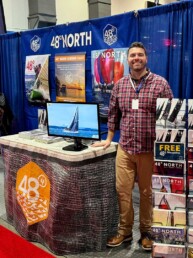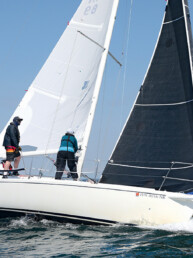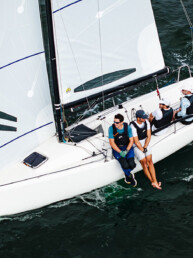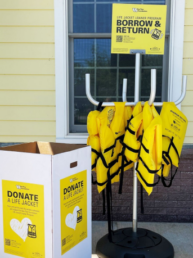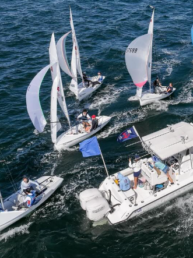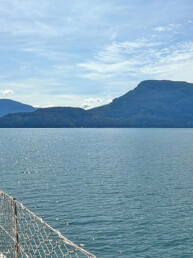Get your Washington Boater’s Card and support youth programs!
Port Townsend’s non-profit Northwest Maritime (NWM) is looking for Safety Vessel Operator volunteers to assist Port Townsend Maritime Academy (PTMA) students with on-the-water training this September. It’s a meaningful way to give back, enjoy time on the water, and earn your Washington Boater’s Card and First Aid certification.
Interested? Join an info session on Monday, July 21, at 11 a.m.—coffee and pastries will be provided! Please contact NWM volunteer coordinator, Tracy Thompson, for more details: tracy@nwmaritime.org
About the Washington State Boaters Card
Many recreational boaters in Washington are required by law to complete a boating safety course and carry a Washington State Boater Education Card, including those volunteering in this capacity.
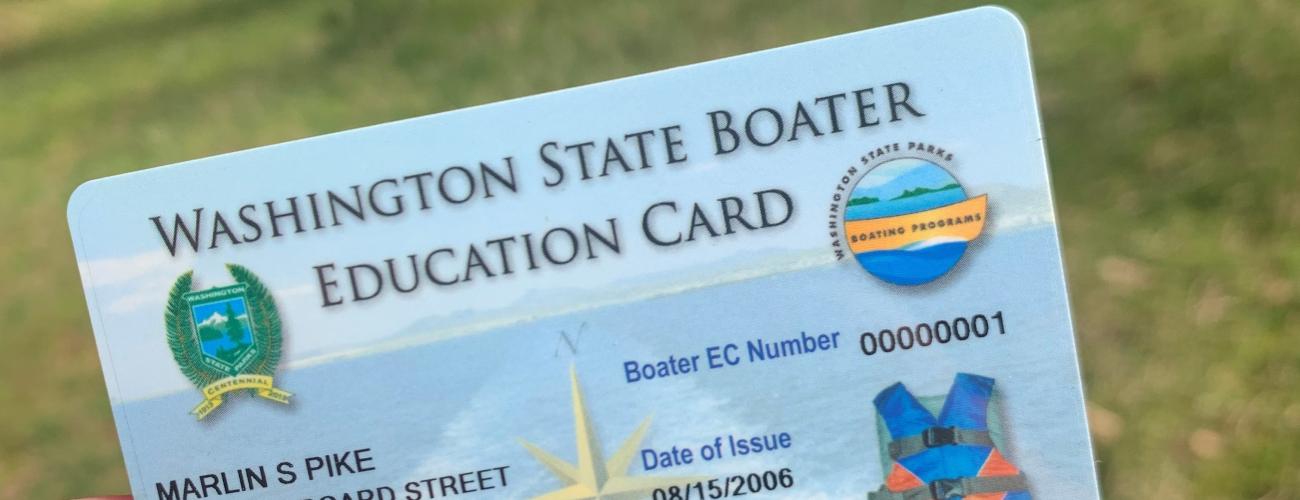
Whether you cruise, sail, kayak, fish, or do yoga on a standup paddleboard, you are responsible to know the laws and basics of boating safety, and are encouraged to take a boating safety course, whether required by law or not.
You are required by law to carry a Boater Education Card if you:
- Operate a vessel with a 15-horsepower (or greater) motor.
- Were born after Jan. 1, 1955.
- Are 12 years of age or older.
The Washington State Boater Education Card is valid for your lifetime and meets requirements for recreational boating in Canada and many other states.
About Port Townsend Maritime Academy
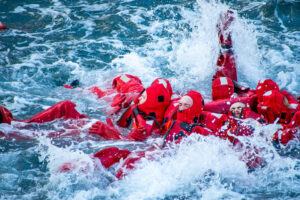 Port Townsend Maritime Academy is a satellite skills center of West Sound Technical Skills Center, operated in partnership with Northwest Maritime and Port Townsend Schools. PTMA is a free half-day program that provides juniors and seniors with the opportunity to gain maritime experience, skills, and certifications while exploring different careers in the maritime industry. In addition, students are able to earn up to three credits in English language arts, physical education, and career technical education. Science credit may be available at the discretion of the sending school.
Port Townsend Maritime Academy is a satellite skills center of West Sound Technical Skills Center, operated in partnership with Northwest Maritime and Port Townsend Schools. PTMA is a free half-day program that provides juniors and seniors with the opportunity to gain maritime experience, skills, and certifications while exploring different careers in the maritime industry. In addition, students are able to earn up to three credits in English language arts, physical education, and career technical education. Science credit may be available at the discretion of the sending school.
Some students plan on pursuing careers on the water or in the marine trades, while others are open to the idea. What all the students share is an interest in learning outside the traditional classroom environment through an experiential, hands-on course of study.
Editor
48° North Editors are committed to telling the best stories from the world of Pacific Northwest boating. We live and breathe this stuff, and share your passion for the boat life. Feel free to keep in touch with tips, stories, photos, and feedback at news@48north.com.

